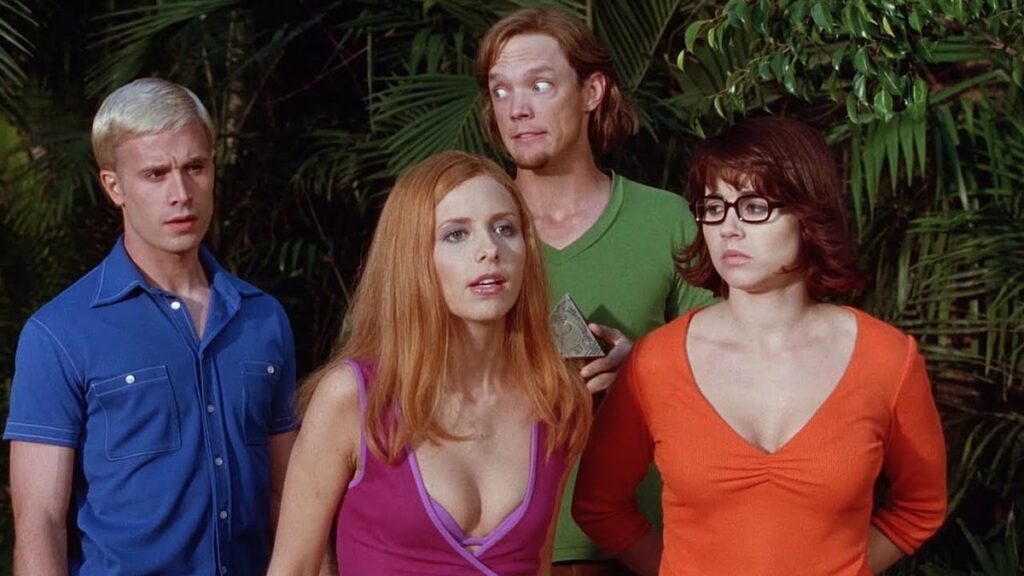
Scooby-Doo (2002) has very little to recommend it to those who aren’t already part of that property’s cult following. Director Raja Gosnell literally translated the cartoon to live action so successfully that it was almost nauseating. I felt that if this film had been in the hands of someone more like Joe Dante there would have been reflexive gags and more of an interest in the general discourse between the two mediums of film and animation. I will give Scooby-Doo this though, it successfully corrected most of the antiquated gender politics of the original television show. Velma finally gets all the credit she deserves as the “brains” of the operation and Daphne transforms herself into a “slayer” after years of being the team’s damsel in distress.
Honestly, I prefer Fangface to the Hanna-Barbera Scooby-Doo cartoons, even though they are essentially the same and share creators. The reason I watched Raja Gosnell’s Scooby-Doo is because I’m a fan of Buffy The Vampire Slayer. Though as far as Sarah Michelle Gellar vehicles go Scooby-Doo wasn’t as good as Simply Irresistible (1999), let alone the inspired Cruel Intentions (1999).
Scooby-Doo really felt like a last hurrah of sorts for this kind of entertainment with this collection of talent. Sarah Michelle Gellar, her husband Freddie Prinze Jr., Matthew Lillard, and Linda Cardellini are all such prominent figures of 1990s youth culture and so closely associated with certain character types for my generation. Watching Scooby-Doo in 2021 feels as if I am witnessing the end of some intangible period. It’s a similar experience, for me personally, to seeing Without A Paddle (2004) when that film first came out.
